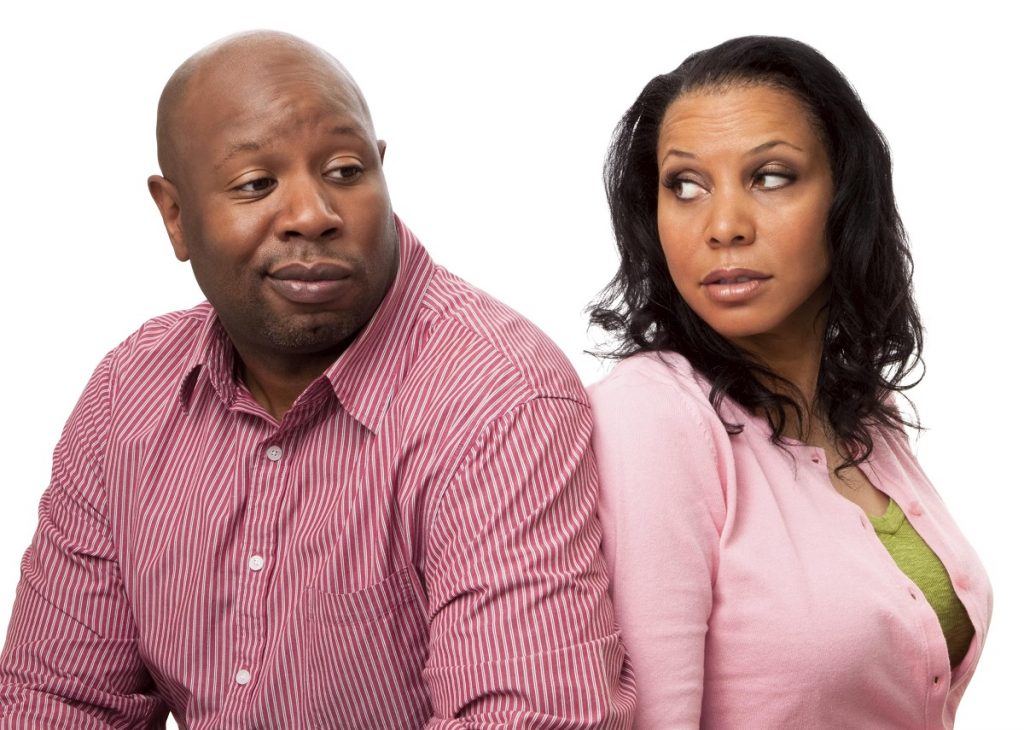If you’ve been diagnosed with painful uterine fibroids, the idea of having sex may not be as appealing to you as it once was. After all, it can hurt—both during and after and through no fault of yours or your partner’s. You may notice your desire waning. You may start to avoid the act altogether. As a result, you may wonder how the combination of uterine fibroids and sex life can co-exist long-term.
The good news is that you don’t have to live with painful fibroids forever, and you can reclaim a healthy sex life.
The key is to look into your treatment options right away. According to The Office on Women’s Health, 20 to 80% of women develop fibroids by the time they reach 50. Most are unaware they have them. For others, fibroids can get too large and, if left untreated, lead to life-altering symptoms that make your sex life painful and even impossible.
Are these symptoms interfering with your sex life?
- Pain during or after sex
- Bleeding after sex
- Decreased sex drive (libido)
- Periods that last longer than a week
- Need to urinate more often
- Vaginal dryness
- Fatigue
- Low self-esteem/body image issues
- Hormonal imbalances
Uterine Fibroids and Sex: A Physical and Emotional Toll
Fibroids are non-cancerous growths that develop from the muscle tissue of the uterus. They can develop inside, outside, and within the uterine walls. Depending on your situation, you may have one or several at varying sizes. While doctors can feel a fibroid with their fingers during a routine pelvic exam, you and your partner cannot. In fact, your partner may find it difficult to understand what you are going through.

What you will experience is a wide range of symptoms—both physical and emotional.
If a woman is experiencing pain during sex, it is often because of where the fibroids are located and their size. Fibroids can grow as large as a melon. However, regardless of size they can place extreme pressure on the uterus and cause pain at the point of penetration and deep in the vagina, especially if any grow close to the cervix. In addition to pain, many women with uterine fibroids experience bleeding with sex. All of these factors can make having sex close to impossible.
If you’re wondering if fibroids can affect libido, the answer is yes. Fibroids are under hormonal control—specifically, estrogen and progesterone. Fibroids tend to grow faster during the reproductive years when hormone levels are at their highest. If you have an excessive amount of estrogen, this can cause a decrease in your sex drive.
Complications due to excessive uterine fibroid growth are rare, but they can be serious and also include:
- Fertility problems
- Repeated miscarriages
- Pregnancy and labor complications
Another factor to consider is how uterine fibroids and sex impact you emotionally. Having a healthy body image and high self-esteem means you feel comfortable with your body and feel good about your femininity and intimate relationships. The National Institutes of Health says that in addition to the physical symptoms associated with painful fibroids and their impact on a woman’s sex life, women are also impacted emotionally, including increased fears about their health along with additional considerations such as:
- Body image — Fibroids can cause bloating and an enlarged abdomen. This leads many women to feel less attractive and go through prolonged periods of low self-esteem over their appearance. They will likely feel uncomfortable showing their body during times of intimacy, even with partners they’ve been with for many years.
- Loss of control/feelings of hopelessness — Women who are initially diagnosed and experiencing painful symptoms, including during sex, often do not understand what is going on and feel like they’ve lost control of their bodies. This can be because of uncontrollable weight gain or not being able to manage their painful symptoms effectively. Beyond the physical pain, these worries interfere with their ability to be intimate.
- Sexual function — Some women find that some sexual encounters with their partner are not painful and even enjoyable. In other instances, it may be the complete opposite. As a result, this unpredictability in sexual relations can create concerns over sexual function and how their bodies and relationships will be impacted long-term.
- Relationships — Being open and honest about a sensitive topic such as uterine fibroids and sex is not easy. Along with body image issues, a woman may feel nervous even talking about it and establishing her needs with her partner out of fear that it will further strain the relationship.

Read the true story of this patient’s journey. [click here]
Uterine Fibroids and Sex: UFE May Be the Option for You
If uterine fibroids and sex with your partner aren’t seeing eye-to-eye, there is an effective and minimally-invasive treatment option called Uterine Fibroid Embolization (UFE). UFE does not technically remove fibroids in the way surgery does. However, it is effective in cutting off blood flow to all fibroids, causing them to shrink and die.
UFE is low risk, no incision, and faster than some of the other options. The best part is that it is an alternative to fibroid surgery such as a hysterectomy and myomectomy. With UFE, small particles are injected into the uterine arteries and fibroid vessels, blocking the blood flow to the fibroids. The procedure will last about one hour, and you will be asleep for the procedure. You can resume light activities as soon as you feel up to it. After a UFE procedure, more than 90% of women notice an improvement in their symptoms, including their ability to enjoy sexual intercourse.
Free Check List
Interested in fibroid treatment without surgery? Download a free check list to see if you are a candidate for UFE
Just a few advantages of UFE include:
- Recovery period is as little as one week in many cases
- Covered by most major medical insurance
- Referrals are not required
- No hospital stay
- 24/7 access to physicians during treatment
- Patients get direct access to their doctor’s mobile number
- Tiny wrist puncture, no need for vaginal access
- All providers are fibroid experts and UFE specialists
Fibroid Treatment without Surgery: Schedule a Consult
For many women, the pain of uterine fibroids can be so severe that it directly affects their ability to have sexual intercourse pain-free. Naturally, this can lead to libido and self-esteem issues.
Suffering through is not something that’s simply part of being a woman. You don’t have to live with fibroid pain. There is an answer, and it doesn’t always involve bloody surgical procedures. At Fibroid Institute Dallas and Fibroid Institute Houston, we are dedicated to helping you become #FibroidFree. Our physicians are interventional radiologists specializing in UFE (Uterine Fibroid Embolization), a non-surgical procedure that causes fibroid tumors to shrink.
To make it easier on both patients and referring doctors, Fibroid Institute Texas handles all orders for MRIs and diagnostic scans. We handle all insurance pre-authorizations and provide cash payment plans. We also offer treatments in the comfort of our offices equipped with advanced medical technology. With each UFE procedure, patients are empowered to achieve their full potential without being limited by fibroid symptoms. For many women, the UFE procedure changed their lives.
Call for a telehealth consult or an in-office appointment at our Dallas fibroid centers at 214-838-6440 or Houston fibroid centers at 713-903-3733 or complete the form below.
Fibroid Institute Texas serves the Dallas and Houston areas including Addison, Carrollton, Plano, Frisco, Craig Ranch, McKinney, Allen, Fort Worth, Grand Prairie, HEB, Arlington, Hutchins, Irving, Duncanville, DeSoto, Cedar Hill, Lancaster, Cockrell Hill, Highland Park, University Park, Park Cities, Garland, Mesquite, Richardson, Dallas, Sherman, Houston, Sugar Land, Katy, Webster, Clear Lake, The Woodlands, Universal City, Spring, Kingwood, Stafford, Conroe, Texas City, Cypress, League City, Bellaire, and more.
This information is not a substitute for professional medical advice. Prior to starting any new treatment or if you have questions regarding a medical condition, always seek the advice of your doctor or other qualified health provider.
*Patient stories are true. Names and/or photos may be changed to protect patient confidentiality.

